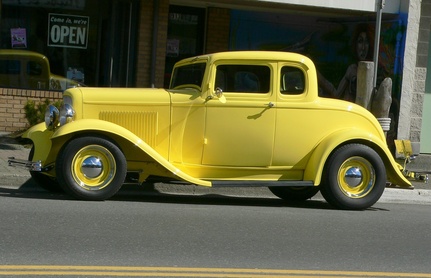
Florida laws on vehicle customization have two distinct purposes—to allow those car enthusiasts that wish to show off custom vehicles and street rods the ability to do so in a safe environment, and to stop those that would make dangerous modifications to vehicles on the street. These laws denote which modifications are legal, imposing fines on those that are found to be driving a vehicle that has illegal modifications.
According to the website for the Sema Action Network, Florida has laws in place that specifically identify custom cars created for display purposes and appearances at car club events/road shows. The law defines a "street rod" as a modified manufactured vehicle built before 1949 and a "custom vehicle" as a car that is at least 25 years old and manufactured after 1948. These vehicles may be used for limited driving, such as to and from events, and have special registration and license plates to identify them to law enforcement. Street rods and custom vehicles of this type are exempt from state inspections and emission standards, equipment restrictions and may use blue-dot tail lights.
No one may modify the windows of a vehicle in Florida to have a total reflectance of visible light greater than 35 percent. According to the website for the Florida Senate, you cannot tint any window of your vehicle so that it is non-transparent, changes the window's color, alters its reflectivity or make any other modification that takes the window's tint beyond the 35 percent limit. Failure to comply with this law is a primary offense in Florida, meaning a police officer can pull you over if he believes your window modifications to be in non-compliance with the vehicle code.
Decals or any other modification that obstructs the view from your windshield are not allowed in Florida except those placed there as part of government inspection requirements. The only exception to this rule applies to the sun screening strip along the top of the windshield that is installed by automakers. You are also required by law to have windshield wipers properly installed on the vehicle.
Florida maintains laws in its vehicle code that only allow certain colors of lights to be used for certain functions performed by the vehicle. Front lamps and reflectors may only shine or reflect an amber color and rear clearance lights may only shine a red light. Stop lights and signal lights at the rear of the vehicle may be red, amber or yellow. Lights showing the vehicle's license plate may be white. No other color lights may be used if the car is intended to be driven on any roadway in Florida.
Vehicles are required to meet certain noise standards. You are not allowed to make modifications to the vehicle's muffler or engine if these modifications take a vehicle's noise output over these accepted standards. For vehicles built after 1979, noise may not exceed 86 to 90 decibels in any 50-foot direction while the vehicle is in operation. Noise standards for vehicles built before this date can go as low as 82 decibels depending on the vehicle's speed.